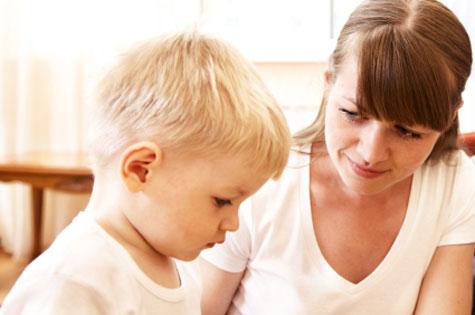As a community we are comfortable teaching our children water safety, fire safety and road safety. Body safety is equally as important. It should become a normal part of our parenting.
Below are some skills that can taught gradually and in daily conversations as your child grows:
1. As soon as your child begins to talk and is aware of their body parts, begin to name them correctly, e.g. toes, nose, eyes, etc. Children should also know the correct names for their genitals from a young age. Try not to use ‘pet names’. This way, if a child is touched inappropriately, they can clearly state to you or a trusted adult where they have been touched.
2. Teach your child that their penis, vagina, breasts and nipples are called their ‘private parts’ and that these are their body parts that go under their swimsuit. Note: a child’s mouth is also known as a ‘private zone’.
3. Teach your child that no-one has the right to touch their private parts/private zones and if someone does they must tell you or a trusted adult (or older teenager) straight away. As your child becomes older (4+) help them to identify five people they could tell. These people are part of their ‘network’.
4. At the same time as you are discussing in appropriate touch, talk about feelings. Discuss what it feels like to be happy, sad, angry, excited, etc. Encourage your child in daily activities to talk about their feelings, e.g. ‘I felt really sad when … pushed me over.’ This way your child will be more able to verbalise how they are feeling if someone does touch them inappropriately.
5.Talk with your child about feeling ‘safe’ and ‘unsafe’. Discuss times when your child might feel ‘unsafe’, e.g. being pushed down a steep slide; or ‘safe’, e.g. snuggled up on the couch reading a book with you. Children need to understand the different emotions that come with feeling ‘safe’ and ‘unsafe’. For example, when feeling ‘safe’, they may feel happy and have a warm feeling inside; when feeling ‘unsafe’ they may feel scared and have a sick feeling in their tummy.
6. Discuss with your child their ‘early warning signs’ when feeling unsafe, i.e. heart racing, feeling sick in the tummy, sweaty palms, feeling like crying. Let them come up with some ideas of their own. Tell your child that they must tell you if any of their ‘early warning signs’ happen in any situation. Reinforce that you will always believe them and that they can tell you anything.
7. As your child grows, try as much as possible to discourage the keeping of secrets. Perpetrators rely heavily on children keeping secrets. Talk about happy surprises such as not telling Granny about her surprise birthday party and ‘bad’ secrets such as someone touching your private parts. Make sure your child knows that if someone does ask them to keep an inappropriate secret that they must tell you or someone in their network straight away.
8. Discuss with your child when it is appropriate for someone to touch their private parts, e.g. a doctor if they are sick (but making sure they know you must be in the room). Discuss with your child that if someone does touch their private parts (without you there) they have the right to say: ‘No!’ or ‘Stop!’ and outstretch their arm and hand. Children (from a very young age) need to know their body is their body and no-one has the right to touch it in appropriately.
9. Lastly sexual abuse prevention and protective behaviours is not only a parent’s responsibly, it is also the community’s responsibility. Ask you child’s kinder or school if they are running a protective behaviours program. If they are not, ask why not.
Please note: the above points are a summary of the body safety skills your child needs to learn. If you wish to learn more, go to such organisations as Child Wise (http://www.childwise.net) and Australian Childhood Foundation (www.childhood.org.au).They have intensive courses in protective behaviours for parents and professionals.
Jayneen Sanders is the author of the children’s picture book ‘Some Secrets Should Never Be Kept’; see: www.somesecrets.info








 Agree (0)
Agree (0) Disagree (
Disagree (







__small.png)










